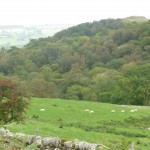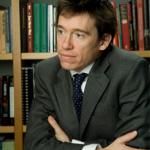RORY GATHERS MPS AND LORDS IN WESTMINSTER TO CELEBRATE THE WORK OF MOUNTAIN AND CAVE RESCUE
As MP for Penrith and the Border and Chairman of the All Party Parliamentary Group for Mountain Rescue, this week Rory gathered around 50 MPs and Lords to meet the Mountain and Cave Rescue teams of England and Wales. The event is in conjunction with a week-long exhibition taking place in the Upper Committee Waiting Hall in the Houses of Parliament
The exhibition is aiming to raise awareness of the vital work that Mountain and Cave Rescue teams do across the country but also highlight the urgent need for a review in the way they are funded.
Mountain and Cave Rescue volunteers now assist emergency services in operations far beyond their original terrain and core skills, with absolutely no cost to the communities they work in. They take part in water rescue, missing person searches and multi-agency, major incident support. Throughout 2012, mountain and cave rescue volunteers across England and Wales gave an estimated 89,582 operational hours to communities, with a further 515,000 hours of fundraising and organisation.
As volunteers, team members do not get paid and operations demand an extremely high commitment from all team members. There are over 1,100 rescues each year in England and Wales, over half of these occurring in the Lake District. A typical rescue may involve up to 20 team members for around 6 hours on average, with volunteers doing this alongside their regular jobs.
Rory said: “I’m delighted to support this exhibition here in Westminster this week. We should be very proud of the amazing work that Mountain Rescue and Cave Rescue teams do across the country. Every year they clock up thousands of operational hours assisting, at no cost to the Government. The volunteers are incredibly dedicated with huge knowledge and one of the very few truly great acts of public service. We still need to do all we can to help Mountain and Cave Rescue teams operate with a minimum red tape and a maximum of support. I hope that many colleagues from both sides of the house will be able to visit the exhibition this week and see the vital work that both teams are doing and realise they need our help and support.”
David Allen, Chairman of Mountain Rescue England and Wales (MREW) said: “We’re keen to show our representatives in Government just how many search and rescue situations involve our volunteer member. We’ve been involved in rescues from ravines, rivers and mineshafts and even searches across golf courses and in town centre high streets. We get involved in supporting the ambulance service in bad weather, especially on roads affected by snow and ice, in searches for vulnerable adults and children and in traumatic situations such as the recovery of suicide and accident victims. It’s certainly not all about mountains and outdoor sports. We get great support from the MPs local to our rescue teams and representing the key areas for our more obvious work such as North Wales and the Lake District and we’re hoping to extend this knowledge and support throughout Parliament this week.”
Mike France, Head of Fundraising MREW said: “Last year, volunteer rescuers gave 13,400 hours to the search for April Jones and that’s about 1,075 days of searchers’ unpaid absence from their work and families. Those same people are available 24/7 throughout the year for local call outs and they have to train for all these different situations and needs so it seems crazy that they also have to find time for fundraising just to keep their Teams going. There is a huge discrepancy between the financial support given by government to Scottish rescuers – about £16,480 per team – and the much more limited funding to English teams of just £2,246 per team. Welsh teams receive a small amount extra after recent decisions in the Welsh Assembly but we’re campaigning in Westminster for MPs to recognise the needs in both England and Wales. If government could guarantee a level of funding from the public purse closer to the Scottish figure, we’d be able to underwrite investments in vehicles and essential kit and subsidise essential training and insurance. We want to be able to ensure that our 3600 or so volunteer rescuers across England and Wales can focus their time and resources on getting the job done rather than having to worry about fundraising.”













